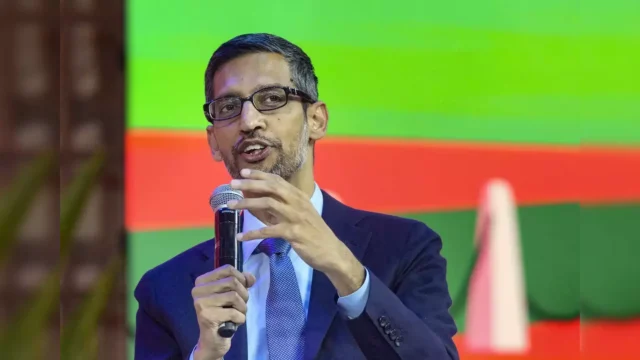
In the vast and fast-evolving tech landscape, Sundar Pichai, CEO of Google and Alphabet, faces the intricate challenge of steering a behemoth like Google towards new frontiers of innovation while ensuring its massive operations remain nimble and efficient. As 2024 unfolds, Pichai has laid out a strategic vision that underscores his commitment to advancing artificial intelligence (AI) responsibly, enhancing personal computing, and boosting company efficiency—all while navigating the complexities inherent in running one of the world’s most influential tech giants.
At the heart of Google’s 2024 roadmap is the ambition to deliver the world’s most advanced, safe, and responsible AI. This focus is exemplified by the development of Gemini Ultra, a cutting-edge AI model that represents a significant leap forward in Google’s AI capabilities. Pichai emphasizes the importance of rigorous testing and refinement for these AI systems to ensure they are both powerful and safe for widespread use. He acknowledges the challenges associated with AI technologies, such as the potential for models to unintentionally reveal private data or produce inaccurate information—known as “hallucinations.” These issues are not just technical hurdles but also ethical and societal ones, requiring a nuanced approach to innovation.
Under Pichai’s leadership, Google has identified seven key goals for 2024. These include not only the advancement of AI but also the improvement of knowledge, learning, creativity, and productivity; the development of helpful personal computing platforms and devices; the enablement of innovation on Google Cloud; the provision of trusted products and platforms; the construction of an extraordinary work environment for Googlers; and the improvement of company velocity, efficiency, and productivity. Particularly notable is Google’s focus on personal computing, with initiatives aimed at making devices like the Pixel more helpful and integrated into users’ lives.
Pichai’s vision for Google extends beyond mere technological innovation to include a deep consideration of AI’s broader impact on society. He reflects on the transformative potential of AI, drawing parallels to previous technological shifts, such as the transition to mobile computing. Yet, he remains acutely aware of the potential for AI to exacerbate societal inequalities. To this end, Pichai stresses the importance of making AI as accessible as possible to a broad audience, leveraging it for beneficial use cases like flood forecasting and language translation, and engaging in proactive discussions with various stakeholders to ensure the technology’s ethical deployment.
Moreover, amidst a global landscape where tech companies are increasingly scrutinized for their size and power, Google’s commitment to efficiency and cost savings has come into sharper focus. Pichai has made difficult decisions, including workforce reductions, to allocate resources more effectively towards strategic priorities. Despite these challenges, the emphasis on AI innovation, particularly through the Gemini project, demonstrates Google’s commitment to maintaining its leadership in the tech industry.
As Pichai navigates Google through these myriad challenges and opportunities, his leadership reflects a balance between bold innovation and responsible stewardship. The journey ahead for Google under Pichai’s guidance is one of exploring the vast potentials of AI and other technological advances while being mindful of their ethical implications and societal impacts.










